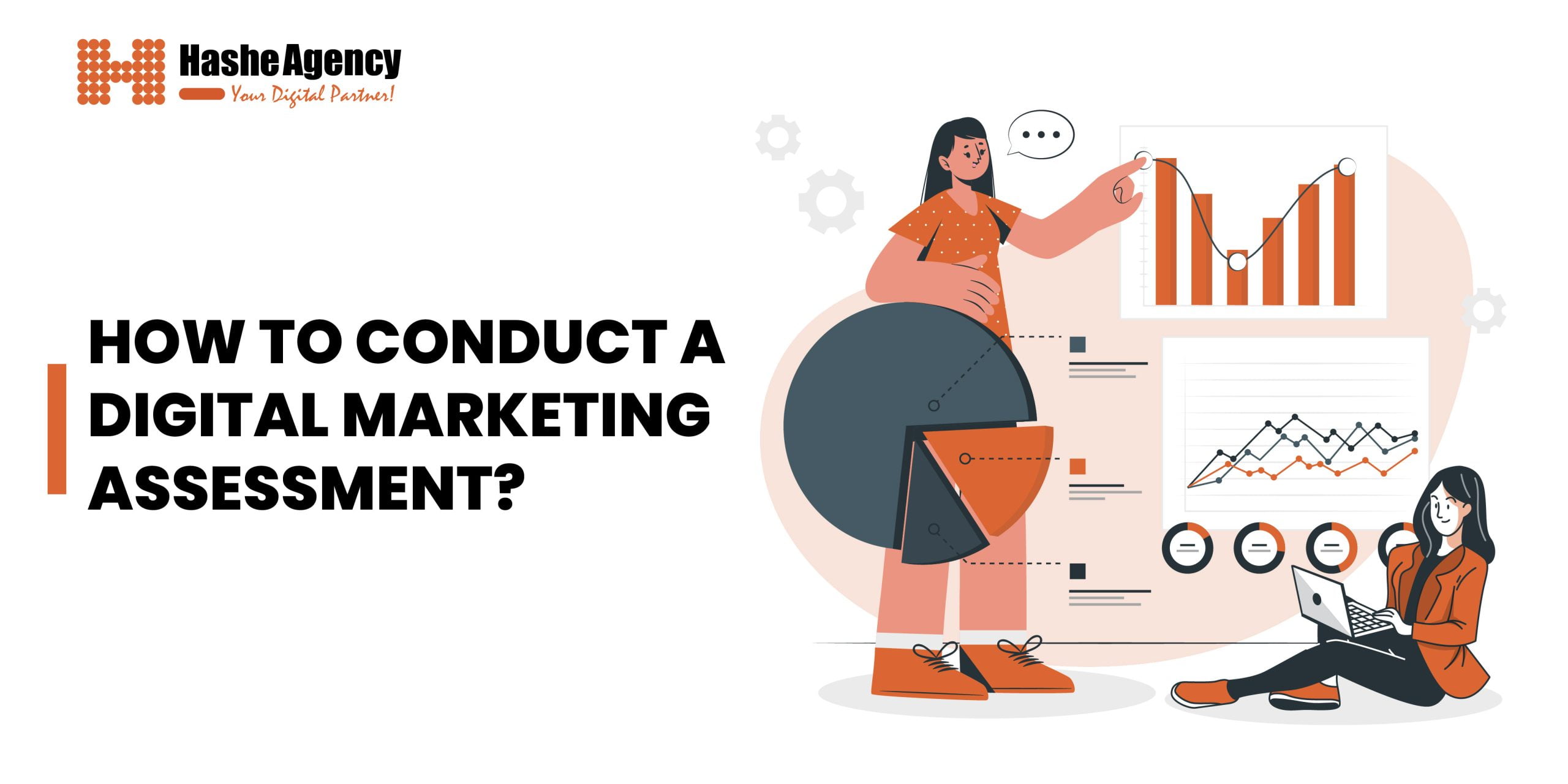From search engine optimization (SEO) and websites to email marketing and social media, digital marketing has become an integral part of every business strategy. The rise in the adoption of mobile devices is one of the key factors that contributed to the evolution of the digital space.
Businesses have to adapt their marketing strategies to cater to these mobile users. A digital marketing assessment is a fundamental requirement to make your marketing efforts generate a good return on investment.
Whether you’re a seasoned marketer looking to refine your marketing approach or want to learn foundational insights, this guide will help you understand how to conduct a digital marketing assessment.
So, let’s get into it!
What Is A Digital Marketing Assessment?
A digital marketing assessment is an in-depth analysis of your existing marketing effort. This includes evaluating your performance on blogs, social media, user experience, and ongoing SEO efforts.
Conducting a digital marketing assessment in this complex digital marketing landscape is crucial to fully understand what prospects for growth you have and how your ads are doing.
Why is Digital Marketing Assessment Important?
A digital marketing assessment is crucial as it helps businesses evaluate their marketing strategies by analyzing key metrics, such as conversion rates, website traffic, and social media engagement to optimize their digital marketing campaigns and make data-driven decisions.
By conducting a digital marketing assessment, companies and businesses determine the effectiveness of their marketing efforts, identify growth opportunities, and measure return on investment.
It allows businesses to stay competitive in the digital landscape and ensures they are engaging with their target audience effectively while maximizing their online presence.
How to Conduct a Digital Marketing Assessment Test?
Define Evaluation Criteria
Businesses often define standard evaluation criteria according to their goals to assess the performance of their digital marketing efforts and identify areas of improvement. It allows them to improve their online presence and make data-driven decisions to achieve better results.
Gather Data and Metrics
To collect metrics and data for a digital marketing assessment, follow these steps:
- Step 1 Identify relevant data sources, such as social media insights, Google Analytics, CRM systems, and email marketing platforms.
- Step 2 Collect data on key performance indicators (KPIs) like conversion rates, website traffic, click-through rates, sales figures, and engagement metrics.
- Step 3 Organize the gathered data into a structured format, making it easier to compare and analyze.
- Step 4 Use data visualization techniques, like graphs and charts, to present the findings concisely and clearly.
- Step 5 Compare the collected metrics against predetermined benchmarks and goals to identify areas for improvement and assess the overall performance.
Analyze Performance
Performance analysis involves the evaluation of various marketing tactics and strategies to determine their impact on desired outcomes. To analyze data, performance, and metrics are analyzed and collected to identify weaknesses and strengths. This is achieved by using key performance indicators (KPIs) such as conversion rates, website traffic, ROI, and engagement metrics.
By examining these metrics, marketers gain insights and understand what is working for a particular business and what needs improvement, enabling them to optimize their digital marketing efforts for better results. Suggestions for improvement may include enhancing content quality, refining targeting strategies, or optimizing conversion funnels.
Identify Strengths and Weaknesses
When conducting a digital marketing assessment, it is crucial to identify the weaknesses and strengths of your current marketing strategies to determine what areas need improvement and what is working well. Here are some steps to effectively identify these weaknesses and strengths:
- Review performance metrics: Analyze data from various digital marketing channels to pinpoint which ones are underperforming and which ones are performing strongly.
- Conduct audience research: Gain insights into your target audience’s behaviors and preferences to analyze where your marketing efforts may be falling short.
- Assess competitor strategies: Evaluate your competitor’s marketing strategies closely to discover any areas where they are performing better.
- Collect feedback: Utilize customer feedback and surveys to gather insights into how your audience perceives your marketing efforts and brand.
Pro-tip: Consider seeking the help of a digital marketing agency or consultant to conduct a comprehensive assessment and obtain unbiased insights into your weaknesses and strengths.
Conclusion
In conclusion, marketing needs assessment to identify the loopholes and optimize your marketing budget effectively while increasing the overall ROI.
So, if you haven’t done a digital marketing assessment ever, now is the time to get everything on track. Hashe agency is ready to give you expert guidance and tailored marketing strategies to the unique characteristics of your business.
Our team of experts will curate a customized marketing plan for your business addressing everything from your corporate objectives to company culture.
So, what are you waiting for? Reach out to us and get your marketing efforts optimized.





